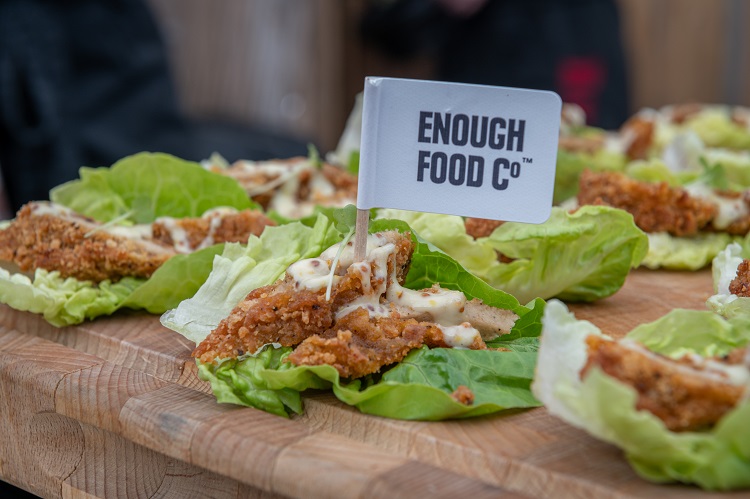ENOUGH (formerly 3f Bio) is a food company based in the Netherlands that produces ABUNDA mycoprotein, a sustainable food ingredient made from fungi. ABUNDA is rich in all nine essential amino acids, high in fiber, and can be used to create meat, seafood, and dairy alternatives.
Following the opening of their facility last year, ENOUGH has recently secured €40m in funding to expand their production capacity. CEO Jim Laird stated, “With these funds, we will double our capacity in the Netherlands from 10k to 20k tonnes. We anticipate the second line to be operational by early 2025.”
The funding round was co-led by climate tech VC World Fund and food tech investor CPT Capital, with support from AXA IM Alts, HAL Investments, Onassis Group, Tailored Solutions, and Sottish Enterprise.
Laird expressed his excitement about the funding, stating, “ENOUGH has made significant progress in recent years, launching our new factory in the Netherlands and working with customers across the UK and Europe. With this new funding, we will accelerate that growth.”
ENOUGH produces ABUNDA mycoprotein by feeding fungi with sugars sourced from grain in a fermentation process similar to beer and wine production. The company obtains wheat sugars from a Cargill factory located alongside their facility in Sas van Gent. The resulting mycoprotein has a neutral flavor and a meat-like texture, making it suitable for various plant-based products, such as meat substitutes, seafood alternatives, and dairy alternatives.
Notable companies incorporating ABUNDA into their plant-based meat products include Unilever’s The Vegetarian Butcher and European poultry processor Plukon Food Group, which is developing animal-free chicken and meat alternative products. Niels van Gestel, CCO of Plukon, remarked, “You can hardly tell the difference between our non-animal chicken with ABUNDA and traditional chicken.”
The sustainability benefits of ABUNDA are remarkable. Compared to beef protein, ABUNDA is up to 15 times more efficient, thanks to ENOUGH’s proprietary technology and zero-waste production. It uses up to 93% less water, 97% less feed, and produces 97% fewer CO2 emissions.
Despite recent signs of a slowdown in the plant-based meat sector, ENOUGH believes that producing large quantities of sustainable protein remains a vital priority. The global meat industry is responsible for nearly 15% of greenhouse gas emissions, along with significant contributions to methane production and deforestation. Market research by BCG predicts that the alternative protein market will reach $290bn (€266bn) by 2035, with at least 10% of meat, eggs, dairy, and seafood consumption coming from alternative sources.
ENOUGH aims to address the limited production capacity of current solutions, which hinders mass-market accessibility and affordability. Laird emphasized, “The alternative protein market is a multi-billion-dollar opportunity, and the ethical and environmental reasons to embrace non-animal protein sources are more pressing than ever.”
The €40m funding will enable ENOUGH to double its capacity at the Sas van Gent site, ultimately reaching a potential annual production of more than 60,000 tonnes. While ENOUGH competes with other mycoprotein producers like Mycorena and Quorn, the company welcomes more players in the field. Laird stated, “ENOUGH’s view is that we are competing in the 600m tonne global protein market, where the vast majority of this is supplied by intensive animal farming. We firmly believe that products made using fungi-derived protein can offer the best-tasting food, with simple ingredients, equal or superior taste, and cost competitiveness compared to animal alternatives.”
As ENOUGH continues to grow, it will assess global demand and consider expanding into other territories, such as North America or Asia. The goal is to replicate their successful co-location model in these regions.
Overall, ENOUGH’s expansion plans and commitment to sustainable protein production align with the growing demand for plant-based alternatives and the urgent need to address the environmental impact of the global meat industry.

